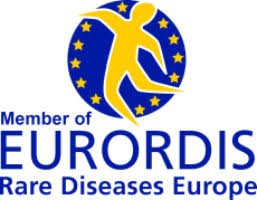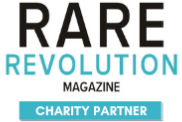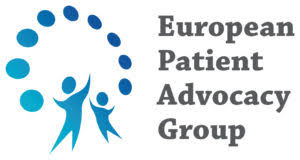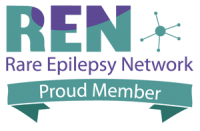
Making genomic understanding of Ring Chromosome 20 Syndrome possible
A collaboration between
Welcome to our UNRAVEL project page!
Here you’ll find all the information about our Ring20 collaborative project with Illumina Inc.
Why UNRAVEL?
Ring Chromosome 20 Syndrome is a rare and under researched condition, raising many questions from families and clinicians/scientists alike. Ring20 are embarking on a journey to try to UNRAVEL some of the mysteries of r(20) to see if we can make diagnosis easier and find clues to help with better treatments in the future.
UNRAVEL comprises two distinct phases:
- PHASE I comprises a patient family education program, alongside preparations for research
- PHASE II comprises patient recruitment for a research and development study
Here’s an outline of what we’ll cover during the unravel project:
Phase 1
(12-30 months)
We commenced work in January 2021 and will be delivering new information updates to you in the coming months on this website and via our social media.
Education and knowledge is power and we want to empower our r(20) patient families to make informed decisions about their participation in research and manage expectations.
Here’s an overview of some of the activities in this phase of UNRAVEL…
Basics of Genomics: How might this help?
What’s the difference between genetics and genomics? How can genomics help people with r(20), both with a diagnosis and those without? We’ll try and explain what’s possible – and what’s not possible.
Fundamentals of Research: What you need to know
For many r(20) patients and families this will be their first opportunity to participate in research. There are some basic principles that we’ll try and explain to you before you get started.
Ethical Approval
Ethical approval is required for any new research to ensure patients and their families are protected. We’ll be starting this process as soon as possible.
Consent Forms
Before you sign-up to any research study you need to provide your consent, so we’ll be preparing consent forms in readiness for Phase II.
Phase 2
R&D commenced Feb 2023
The scientific partnership will work on unravelling the genomes of r(20) patients to identify new cases and develop an effective diagnostic test for the future.
Samples have been collected via the NIHR Bioresource and have been sent to Illumina to commence their R&D.
Patient Recruitment
Approximately 20 individuals with an r(20) diagnosis will be required for this study. We’ll need people from across the spectrum – male/female, mosaic/non-mosaic, children/adults etc. We will advise when and who is eligible to sign-up in due course.
Sample Collection
We will require samples from each participant for Illumina to work with and these may be simple blood samples, or possibly small skin or saliva samples. We will let you know where you will need to go to give your sample and how to send it to us.
Research and Development
Once the samples are collected, Illumina can start the exciting work to see if they can ‘see’ r(20) using their high performance machines using Whole Genome Sequencing, then hopefully configure their computers to make new r(20) diagnoses in the future.
Results Dissemination
Those who participate in the study will receive the results of what has been found when their genome has been sequenced. Any new discoveries we make about the genomics of r(20) syndrome generally, will be published widely and may form the basis of possible new research in the future.
Meet our Unravel Champions
We are really lucky to have a core group of individuals living with r(20) syndrome and parent/carers who are helping us to shape UNRAVEL. Get to know them a little better…
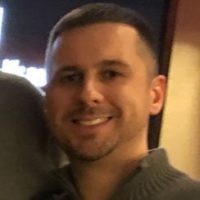
Steve Baumley
Melissa and I have agreed to be a champion for this imperative project because families and physicians need to be educated and guided by our real life experiences. The misinformed convictions that we have experienced in the medical field regarding r(20) is very concerning and we want to be part of the solution! The unraveling of r(20) is in its embryonic stages and for the science to advance we need to have these difficult conversations and support each other through it all.
Steve Baumley (USA)

Junko Okuda
My daughter Karen is 18. She started having symptoms of r(20) when she was 8. I hope we can reach out to other patients with r(20) and their families, and will find out better treatments for our hopeful future together.
Junko Okuda (USA/ Japan)
Andre Reis e Silva
Andre Reis e Silva (Portugal)

Tim Buckinx
Today's postgenomic era technologies allow me to dream about the great promise they hold to unravel r(20) and their potential impact on the future of our children and many others.
Tim Buckinx (Belgium/ Netherlands)
Maryse Barette
Maryse Barette (France)

Arantxa Miralles
Among other vital objectives, I want to ensure that my daughter could have a good quality of life, that she could live as an independent person and that there could be all the possible advances at a medical level and we could help our neurologists to find the best medications or therapies that could help to have the control over our children´ seizures.”
Arantxa Miralles (Spain)
Stefan Grutschus
Stefan Grutschus (Germany)

Yvonne Goodson
My daughter, Lydia, is 21 and was diagnosed with Ring 20 aged 11. I’m taking part in Unravel as I’m hopeful that things could get better for her.
Yvonne Goodson (UK)

Dale Ward
Since the age of eight, r(20) syndrome been a massive part of my life and what Ring 20 Research and Support has done for people living with r(20) can only be admired. I see younger people suffering with very similar things to me and if there is anything I can do to help, I will.
Dale Ward (UK)
Ably supported by...
Laura is our native Italian speaking volunteer who helps us connect families in Italy.
Kallif volunteers supporting our young adults with an r(20) diagnosis, through the Step Into The Ring group (SITR).
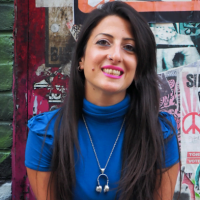
Dale Ward
Laura Giordano (Italy)

Dale Ward
Kallif Garlicki (SITR)
Become the first to find out more about UNRAVEL
Sign up to our mailing list to be notified about more UNRAVEL news and updates.
Frequently asked questions
Here are some of the questions we often get asked about the UNRAVEL project:
We will need about 20 people with an r(20) diagnosis to take part in the Illumina study. There will be eligibility criteria set out in due course, so keep checking back on this page regularly.
We are still hoping to proceed with the Natural History and Biomarker Study with the University of Glasgow, but have had to delay the start due to the pandemic. These are 2 different research projects looking into r(20) syndrome, although they are linked. The samples required and the patient selection for the Illumina Study will be undertaken as part of the Natural History Study and the results of the genomes sequenced will be fed back into the Patient Registry that will be created.
More information on the Natural History Study will follow as it becomes available.
We will only require a certain number of samples for the scientists to conduct their research and ideally we need a range of individuals: make/female, young/old, mosaic/non-mosaic, with deletions in the chromosome/without deletions, different symptoms or IQ levels etc..
If we have more individuals come forward than are needed (we anticipate around 20 samples will be required) then we will undertake a careful selection process to ensure the range of individuals being studied is as diverse as possible. This will help the scientists to see if/where any differences in the genome occur between individuals with r(20) syndrome and what symptoms they might correlate to.
Of course we would like as many individuals as possible to come forward and we will advise everyone when you can start to sign up.
We will be embarking on producing lots of new information over the coming weeks and months, to help everyone to better understand what having an r(20) diagnosis means and what we do/don’t know about r(20) syndrome AND what we hope to try to find out.
We cannot unfortunately answer specifically on a case by case basis, but there will be opportunities to ask questions as we move through this education and awareness phase, where we will bring in experts to assist us in our work.
The best way is to subscribe to our mailing list above, or email us at [email protected]
Got more questions?
We’d be happy to answer them. Send us a brief message below


